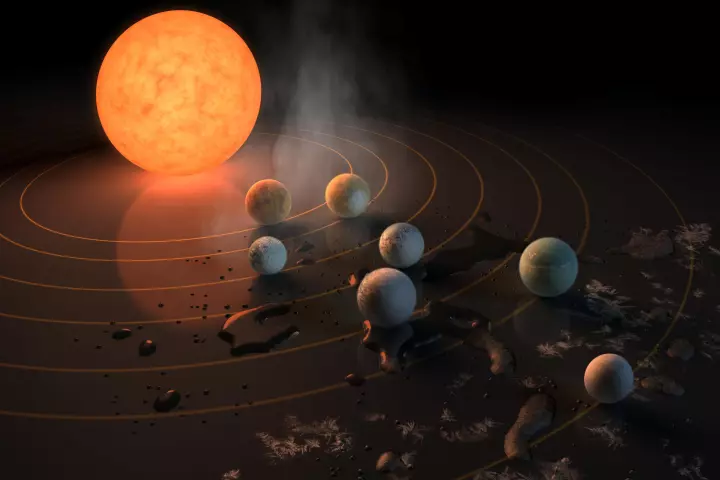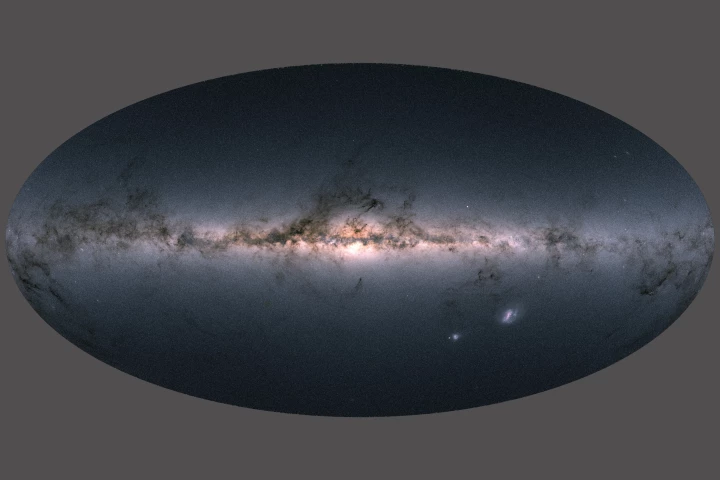University of Geneva
-
The beta cells of the pancreas don’t need the assistance of other pancreatic cells to produce insulin, according to new research. The findings are a potential game-changer for diabetics and challenge a long-held assumption about how the body produces insulin.
-
A study of nearly 3,000 Swiss men over the course of 13 years has shown a link between frequent cell phone use and a decrease in sperm quantity. What's more, today's 4G and 5G networks may have less of an impact than older communications technology.
-
Astronomers have classified planetary systems into four distinct categories, based on the sizes and arrangements of their planets. As it turns out, the architecture of our own solar system is the rarest kind.
-
Scientists have demonstrated a more advanced lightning rod than a humble metal stick. Beaming a high-powered laser into the sky was shown to deflect lightning bolts, enabling laser lightning rods that protect a wider area from dangerous strikes.
-
New research published in Nature Medicine has found COVID-19 vaccination can reduce a person’s infectious viral load. The study compared the infectiousness of different SARS-CoV-2 variants in vaccinated and unvaccinated subjects.
-
Antibiotics may work, but they drive bacteria to evolve into new drug-resistant forms. Now a new study has uncovered a mechanism that could make the bugs non-infectious without killing them, reducing the evolutionary pressure that leads to superbugs.
-
A new study into the gut microbiome and Alzheimer's has shown that shifts in bacterial diversity are associated with inflammation and heightened numbers of amyloid plaques in the brain, one of the hallmarks of the condition.
-
A team of international researchers has confirmed the existence of an Earth-like exoplanet only 4.2 light-years from the Sun. The ESPRESSO spectrograph found Proxima b has a mass of 1.17 Earths and orbits in the habitable zone of Proxima Centauri.
-
Viruses are difficult to kill – most of the drugs and chemicals that do are also harmful to human health. But now, scientists have developed a new virucidal substance derived from sugar, making it deadly to a wide range of viruses but safe for us.
-
The 2019 Nobel Prize in Physics recognizes three scientists for improving our understanding of the universe's history and Earth's place in the cosmos.
-
With surface temperatures of up to 4,327° C (7,820° F), exoplanet KELT-9b is hotter than many stars – and, according to a new discovery, hot enough to vaporize heavy metals. Researchers have now detected iron and titanium vapor in KELT-9b’s atmosphere.
-
Back in February, the US Food and Drug Administration announced a new blood test that could be used to check patients for concussions. Now, Swiss scientists have developed a handheld device that can be used by laypeople to perform a similar test within minutes, on the spot.
Load More











